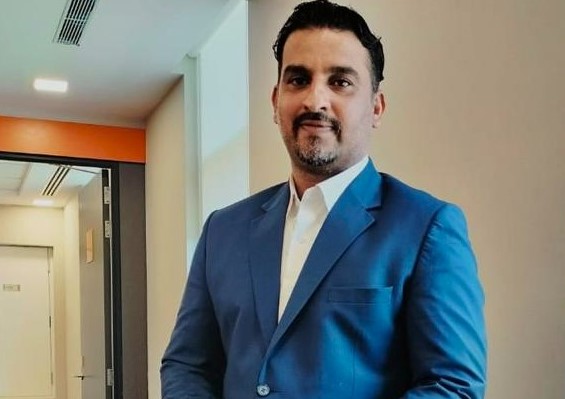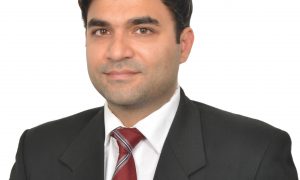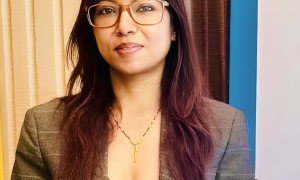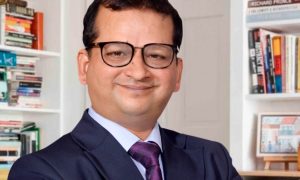This Interview has been published by Pragya Chandni and The SuperLawyer Team
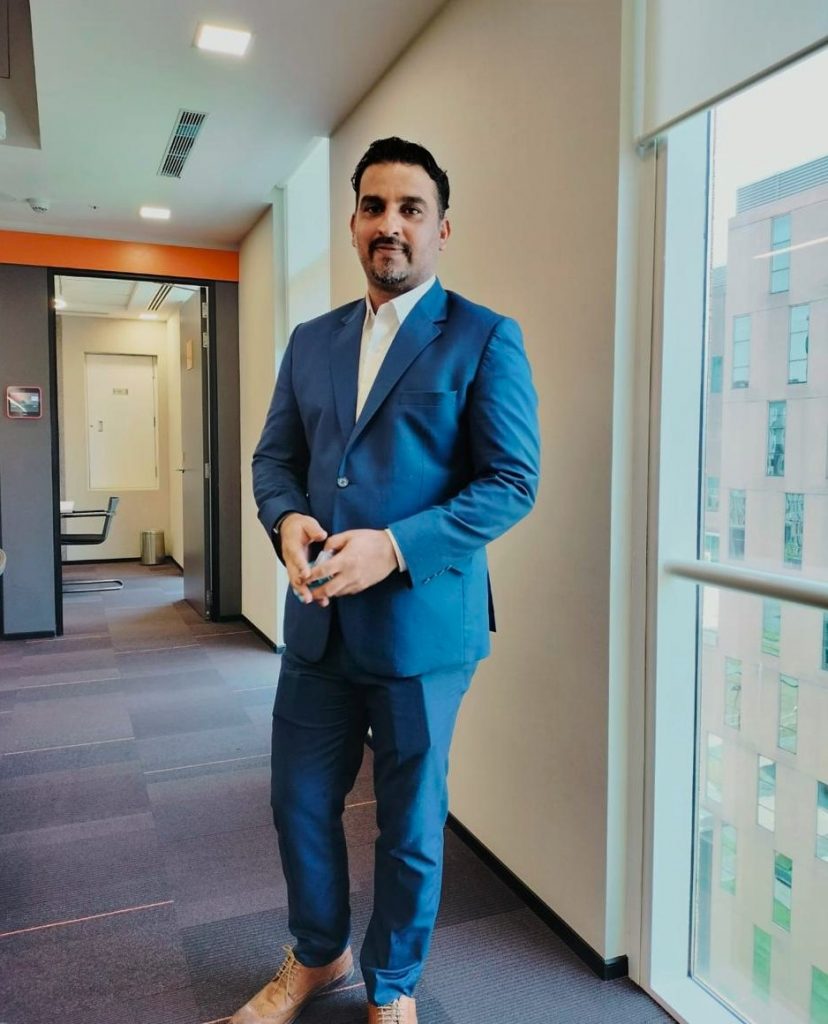
Can you please share a bit about your journey into the field of law? What initially drew you to pursue a career in this field, especially with a focus on corporate law?
I am an accidental lawyer (lawyer by destiny not by choice). My journey into law was unexpected while growing up, I never imagined myself as a lawyer. During my school days I was crazy about sports (especially cricket), I wanted my passion for cricket to turn into a profession. I represented my state J&K in multiple youth competitions organised by BCCI. For a number of years, I went through the ranks of representing J&K in various national level trophies U-14, U-16 and U-19, which included Vijay Merchant, Vinoo Mankand & Cooch Behar Trophy. Also, I was among very few to have achieved a unique fear of being selected to play a national level university tournament (Vizzy Trophy) for Kashmir and Bangalore University. However, God had some other plans and I ended up being a lawyer.
During my college days, I just wanted to finish 3 years of my 5-year law course and get back to cricket. I had enormous support from my college, teachers, staff and friends during my entire law degree. It was because of few well-wishers in the college, I ended up staying back for 5 years and completing my law degree. Honestly speaking without those individuals, I wouldn’t have completed my law degree – A big thanks to all of them.
After finishing my law, I took a break for a few months and started to think about my future. At that point my cricket was going as I expected and I made the decision to dive into law as a full-time career. I always wanted to start my law career away from my hometown and by doing so, I kind of restricted my areas of practice. How did I choose corporate law as a career option? I had limited options and time was running away, in my personal opinion to have a flourishing career in private practise it is important that one should be proficient in the local language of that particular place and the other option was to get in corporate side of law and catch up on the learnings which I had missed doing during my college days (like doing internships). I chose the latter, I wanted to develop strong business acumen and a solid legal foundation, corporate law just provided me the perfect platform. Also, corporate law exposes you to different laws/ regulations, you are hand in hand with various strategies of business, helps you understand the market dynamics and you are among the early adopters of new technologies around the world. These are a few reasons which were aligned with my interests, my education and my personality that I chose corporate law, and the journey hasn’t been an easy one.
Ranging from data privacy to cybercrime protection, how do these certifications contribute to your approach to legal counsel, particularly in a fast-paced environment like the banking sector?
Continuous learning is a key for any legal professional and in current times one needs to adapt to the constantly evolving legal requirements. The modus operandi of crime is rapidly shifting toward the internet, in India alone last year (2023) 1.13 million cases of financial cyber fraud were reported. So, it becomes pivotal for a legal profession to understand these new requirements and develop an approach which protects your organisation from getting exposed to these modern-day crimes regardless of the industry.
These law courses and certificates are a good source to gain specialized knowledge in different areas of law. It has definitely helped me to gain practical skills that are required in understanding, tackling and overcoming these new changeling regulations. I also make it a point to attend as many workshops, seminars and webinars conducted by various renowned law firms on the subject of data privacy and cyber security, as these events are very rich in content and backed by practical experiences. I would recommend all the future professionals to participate in these events (when time permits), this would enhance their learning and help them in developing new skills.
As a Senior Legal Counsel at Standard Chartered Bank, you’ve been deeply involved in various aspects of contract drafting, negotiation, and compliance. Can you elaborate on how you balance the need for legal rigor with the demands of driving business growth?
In the era that we are in, the role of an in-house lawyer has changed significantly from a decade ago. We need to act as business enablers rather than just legal advisers, this “value add” helps business growth of organisation.
While being a business enabler, one must not forget that in-house counsel is the gatekeepers of an organisation. So, it is critical to deploy agile ways of working that adds commercial value to the organisation while keeping it safe, enabling it to achieve its strategy objectives with high integrity. In my current role the expectation from me is to provide advice proactively, be a business enabler, think in terms of risk (and reward), and draft documents in line with business expectations and regulatory requirements. I often get asked by my stakeholders to find solutions to various difficult questions and grey areas. But I do keep in mind my professional duty of acting in the best interest of the organisation and therefore it becomes important for me to view the question from a very different perspective than my business colleagues. While drafting or during negotiation of a particular transition regardless of the monetary value, I ensure strict adherence to the legal/ regulatory obligations, eliminating any possibility of non-compliance.
A crucial aspect of maintaining consistency in a rapidly evolving industry that prioritises business expansion is by knowing the boundaries between what is lawful and right (doing the right thing).
In your role at Standard Chartered Bank, you’ve been instrumental in managing complex M&A activities and supporting various global initiatives. Could you walk us through a particularly challenging project you’ve tackled and the strategies you employed to navigate it successfully?
Standard Chartered is an amazing place to work, especially the legal department. I have grown leaps and bounds over the past few years and gained valuable experiences. A big shout to my colleagues, the legal management team and my people leader for having faith and trusting me to take a lead on some of the complex initiatives, giving me absolute freedom to plan my strategies around these projects.
It’s quite difficult to pick one project, honestly every project or every transaction that I’m part of has its own set of challenges. One simple rule which I follow in my day-to-day activities is that while I am working on a matter, whether I am drafting or during contract negotiations, I never look at the names of the people/ organisations on the other side of the table, I keep my (woodpecker) focus on what is beneficial and risk free for my organisation. Last year I was given a task to empanel some of the best law firms in the world on the Bank’s global legal panel. The purpose was to use the expertise of these firms in complex scenarios across the Bank’s physical and digital footprint. The negotiations were intense and engrossing not only on the provisions of law but on policies as well, the successful completion of the project resulted in many appreciations and me getting an award.
Collaboration seems to be a recurring theme in your career, from brokering alliances with law firms to supporting cross-functional initiatives within the bank. How do you approach building and maintaining productive relationships with diverse stakeholders, both internal and external?
The knowledge of the law remains one essential skill to be successful as an in-house counsel. However, the ability to develop strong relationships with stakeholders inside the business, outside counsel, and other external stakeholders to the business is critical and a crucial soft skill one must possess. Better working relationships lead to better teamwork which will help you to be less stressed, more engaged, more productive and avoid time-consuming disagreements.
I keep it very simple, there is no rocket science in developing this soft skill, I always put myself in others shoes to understand their requirements or pain points. First and foremost, in a house role your need to understand the business requirement, have a clear communication with internal stakeholders, clear any ambiguity, be an active listener, values their inputs or suggestions, provide them clear expectations/ timelines, go back to the drawing board and come back with a solution which should be within the boundaries of your organisational policies and regulatory requirements. Once all the internal stakeholders are aligned with the solution, I would engage the external stakeholders and replicate the similar process of communication. From many years this has really worked well for me and I have been able to build a very strong working relation within my organisation outside as well.
Your experience spans both in-house counsel roles and consultancy positions. How do these different perspectives inform your approach to legal counsel, particularly in terms of understanding and addressing the needs of your clients?
After 5 years of working in a corporation, I decided to take a bold and conscious step of moving out of corporate and getting into the consultancy side of law. The move wasn’t a knee jerk reaction instead it was a thoughtful decision, the primary reason being getting involved in complex legal work. The roles which I was doing in corporate were completely driven by processes and SOPs and barely required any intellect or any out of box thinking, so I felt I was restricting my skills, plus I wasn’t gaining any new knowledge apart from getting to know the corporate culture in India works (which sometimes is toxic). The move was challenging and I knew from the start it was not going to be a walk in the park, initially I started attending courts in Bangalore. After a few months, I got a retainer from a hospitality organisation and that was my first client. I was given an initial task to streamline their policies, website T&C’s, service agreements, and initiate an IP suit. I was able to successfully complete all the tasks and they offered me a permanent role, but I ended up rejecting that and continuing as a consultant. During the same time, I met a GC India of a large pharma conglomerate and he gave a task of initiating money recovery suits against many of their non paying clients, it was a 90 days assignment. I ended up working as a consultant for them for close to two years, streamlining contracts, managing external legal counsels, leading a winding up petition against a big hospital chain in India and closing down a few manufacturing factory units in India. The period of 3 years working as a consultant with many clients ranging from pharma, ecommerce, hospitality and media agencies gave me a rich experience of handling different legal requirements, which in turn helped me grow as a sound legal professional.
I never changed my approach towards work whether it was during my time as consultant or in house role. The basics of lawyering remain the same, doing the proper discovery, immaculate drafting, understanding the need, interpretation of statutes keeping in mind that your client or business is from a non-law background and being confident/ consistent. Yes, a minor adjustment here and there that’s all was required while performing the roles. The legal needs of clients or businesses mostly revolve around being proactive (safeguarding measures) or in some cases being reactive (remedial actions).
Lastly, considering your extensive experience and achievements, what advice would you offer to law graduates aspiring to build successful careers in the legal profession, particularly in navigating the evolving landscape of business and compliance?
Smile! I am still learning, I firmly believe achievements are yet to come, I can just relate it to my playing days, that I have just got into double figures and I need to convert this into a big hundred and then celebrate, so there is a long way to go.
Legal profession is a noble profession, you should be trusted advisers, upright citizens and honest in your approach. Your interests should not be our own, but should be those which align with the discharge of your duties to the law, to your client and as per the oath.
As a budding lawyer, if your interests are in helping people in your day-to-day life, being an inspiration or being real (not role) model in society, here are few tips which you can be fruitful and helpful:
- Stay Humble and Grateful.
- Continuous learning.
- Be Forthright.
- Exercise Diligence.
- Go above and beyond.
- Have Integrity.
- Trusted Advisor.
- Celebrate Success.
- Smile.
Also, you must spend time on becoming a lawyer of the future; a lawyer who is not only fluent in the law, but also the commercial and customer-centric demands of the profession (O shaped Lawyer). You need to bring in a change to the public perception of lawyers, which in many societies today is that lawyers are ripping off people, greedy, selfish and arrogant. Lawyers have a fantastic opportunity to make significant contributions to society. You are privileged, educated, articulate and hard workers – make use of your skills. As a young legal professional raises your bar, you should be beyond reproach, something that others strive to be like, and something you should be honoured to be a part of. There is no short cut to success as you keep learning, you need to put in some hard yards to master the art and by doing so you will evolve as a professional.
May your future be bright and prosperous!
Happy Lawyering!
Get in touch with Sajid Nissar Mir-

